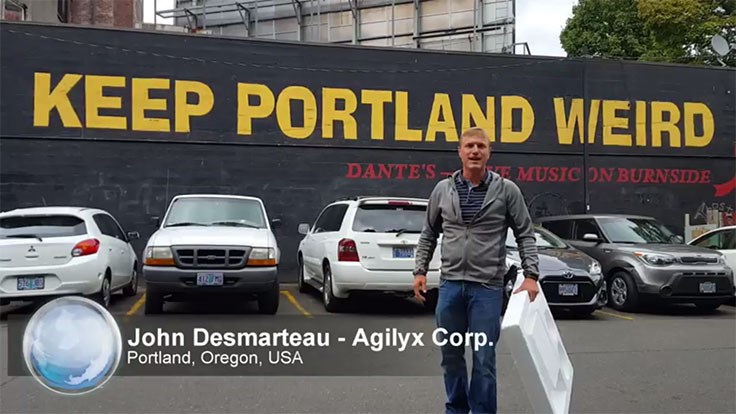During Wastecon 2016, Aug. 22-25, at the Indiana Convention Center in Indianapolis, John Carlton, senior vice president, GBB, provided an overview of the procurement work the firm has done for Metlakatla Indian Community (MIC), the only Indian reservation in Alaska. Metlakatla is located on the southeastern tip of Alaska on Annette Island.
The peninsula of the Island where Metlakatla is located has about 1,500 residents and is mostly a fishing community. It is part of a series of islands near Ketchikan, Alaska. Carlton noted while the area is beautiful, access to and from the island is difficult which makes the cost of getting anything on and off the island high, including diesel and trash.
The current method of handling trash in the community is a burning dump. Waste at the dump is open burned as a waste reduction measure. No pollution control from the emissions or ground contamination are in place. Carlton described the dump as “away from the population but odor and emissions do impact the populations.”
The lack of proper pollution controls is a concern for the islanders, so they hired GBB to look at options, which the community hopes grant funds from Bureau of Indian Affairs can help pay for.
Carlton said GBB looked at three options: off-island disposal, waste-to-heat, and waste-to-fuel.
Whatever system was put in place would handle about 5 tons per day (TPD) of municipal solid waste. The life of the project is for 20 years. In order to gauge interest, a request for expression of interest and qualifications (RFIQ) was issued. Carlton said the respondents all indicated they had technology that would meet the specifications for the tonnage, eight-hour per day batch system, operating 50 weeks per year with expansion ability. The facility also was not to have any pretreatment of the waste.
For the waste-to-heat scenario, an idea was to heat a community pool, but there were concerns about the facility being so close to residents. The off-island transport would have sent the waste to a Ketchikan transfer station. Off-island transport was the highest cost option at $495 per ton. The electricity option was $179 per ton, while the heat recovery was the lowest cost at $157 per ton.
The option that was determined to be the best was the electrical option and the location would be at the dump. Four companies responded to the RFIQ: Eco Waste Solutions, Pennram Diversified Manufacturing Corp., Consultech Systems and Dynamis Energy LLC. GBB is also working with Metlakatla Power and Light on the interconnection details and a preliminary design is in the works.
Wastecon 2016, an annual conference hosted by the Solid Waste Association of North America was Aug. 22-25 in Indianapolis.



